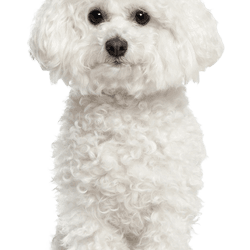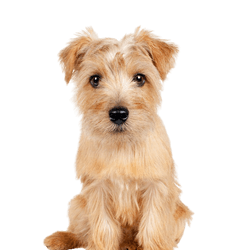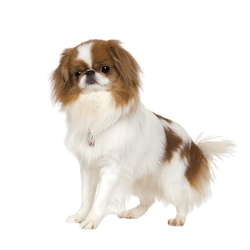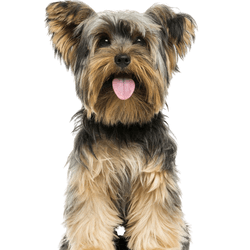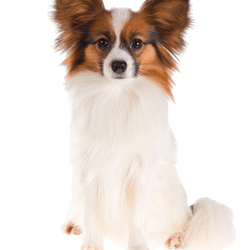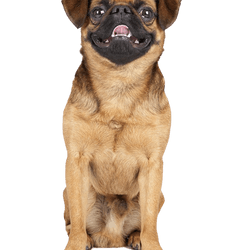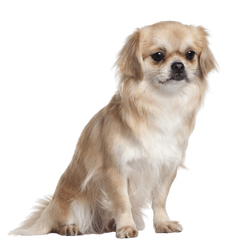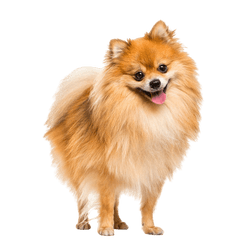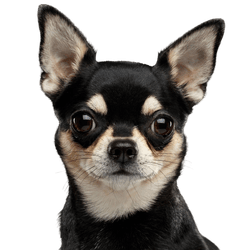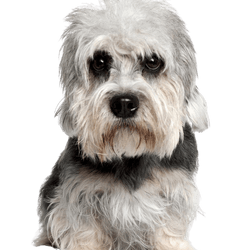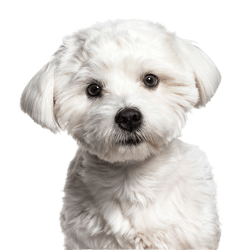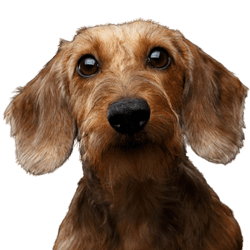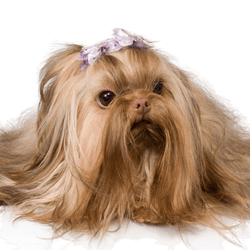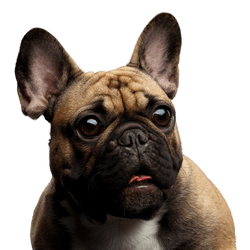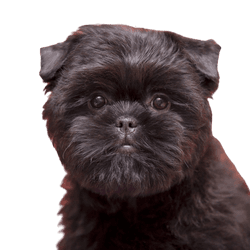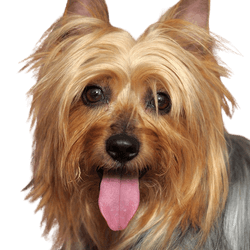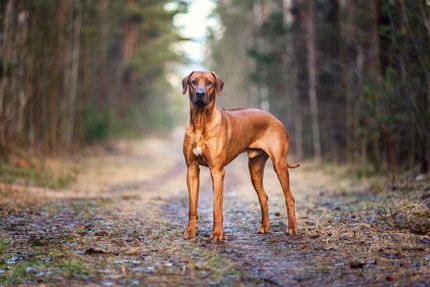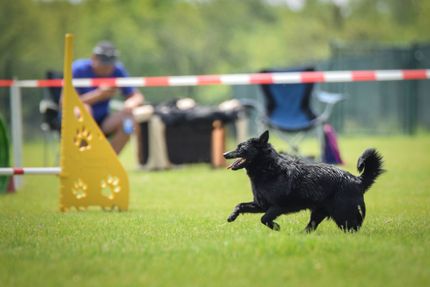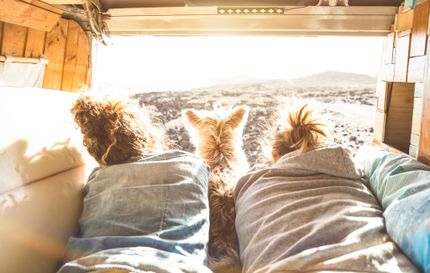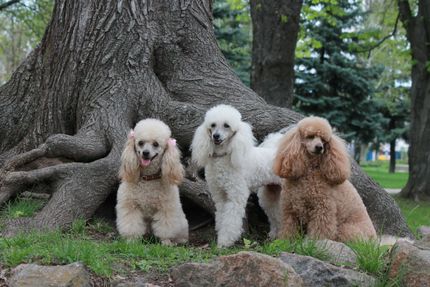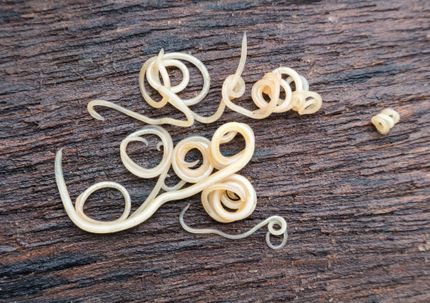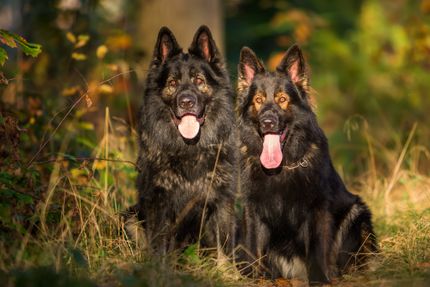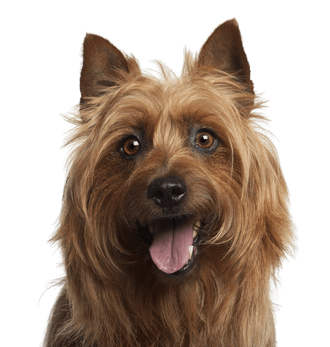
Australian terrier Breed description: Character & Co
Australian terrier
Facts & Origin
Origin of the Australian Terrier
The Australian Terrier originally served as a mouse and rat hunter, but was also more often sent forward in mines to kill snakes. It is also suitable as a herding and guard dog. The breed developed in Australia in the 19th century and evolved from several other terrier breeds. It is assumed to be a mixture of Cairn Terrier, Scotch Terrier, Irish Terrier, Skye, Norwich, Dandie Dinmont and Yorkshire Terrier. In the early 20th century, the breed first made its way to Great Britain, where it gradually became more popular. In 1921, the first breed standard for the Australian Terrier was established, and in the 1930s, the breed was finally recognized by the British Kennel Club.
Breed characteristics
The Australian Terrier is classified by the FCI in group 3 "Terriers" and within this group in section 2 "Low-ranking Terriers, without working test". Ideally, males of the breed should reach a height at withers of about 25 cm and maintain an ideal weight of about 6.5 kg. He is usually described as a small yet strong dog with a rather long midsection in proportion to his shoulder height. A distinctive feature is the distinct ruff that appears around the neck and extends to the sternum.
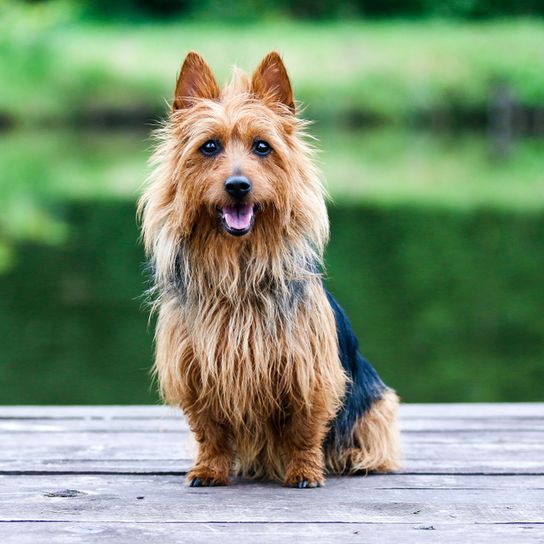
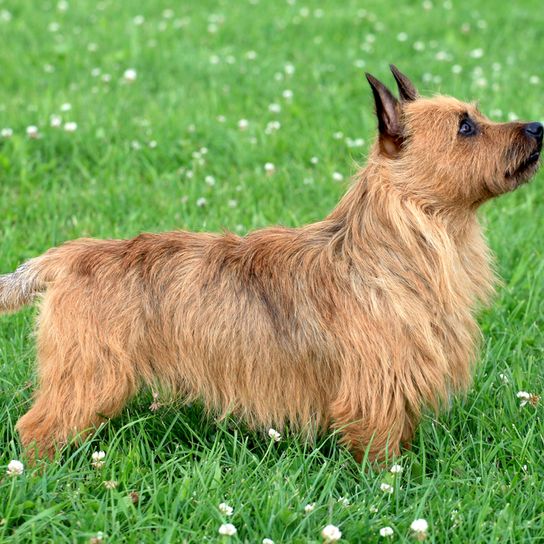
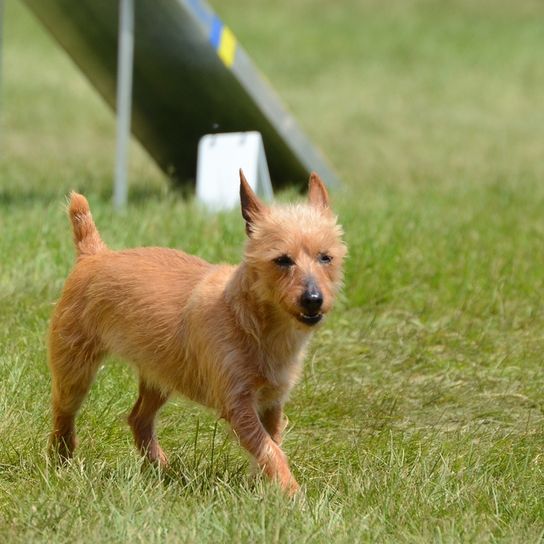
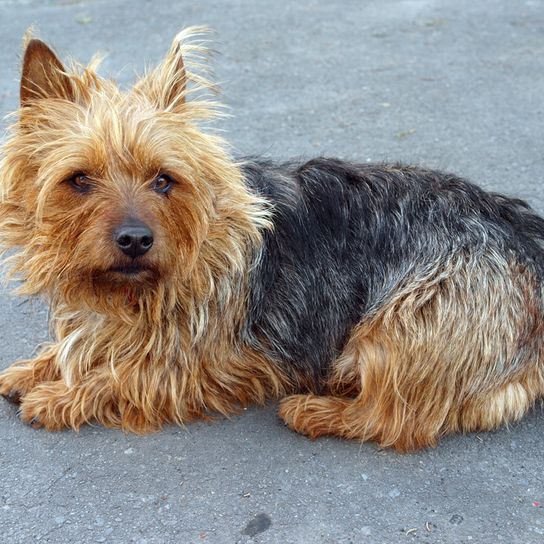
| Alternate Name | - |
| Origin | Australia |
| Life expectancy | 10 - 12 years |
| Care requirements | low-maintenance |
| Activity level | average |
| FCI group | Small sized Terriers |
| AKC group | Terrier Group |
| KC group | Terrier Group |
Australian terrier mixes
Attitude, character and temperament of the breed
What are typical character traits
The Australian Terrier has an extremely friendly and happy nature. Despite his lively temperament, he can generally be described as a very even-tempered dog, who is usually open-minded and receptive towards other dogs, provided he is well socialized. When interacting with children, the little Australian shows great patience and is basically affectionate, loyal and faithful. He has a strong and reliable sense of hearing and will be happy to guard the house and yard if you choose to give him this task. Because of these characteristics he is ideal as a family dog but also as a companion dog.
Character
Usage
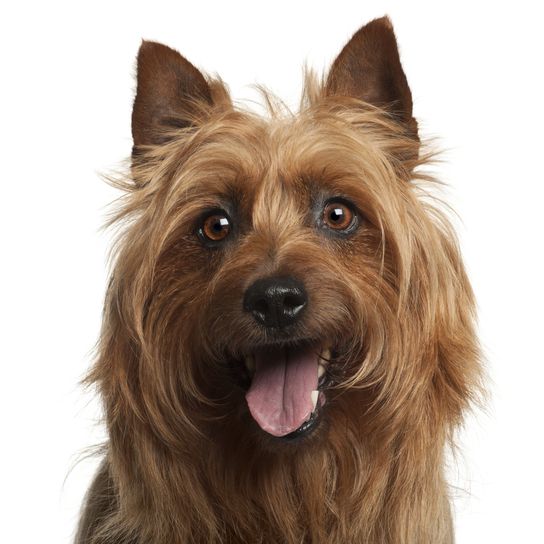

Health and breeding information
What are typical diseases of the terrier?
Typical diseases of the breed are considered to be:
- Patellar luxation
- Aseptic necrosis of the femoral head
- Dental problems (gum inflammation/shrinking, tartar etc.)
- Diabetes
Of course, this can be well prevented with proper nutrition and care to avoid more serious diseases.
What to consider when breeding and how much does the dog cost?
The costs of an Australian Terrier - both in terms of purchase and keeping - can vary greatly. Since the breed is still quite rare in Germany, it is worthwhile to contact an experienced and recognized breeder. You can find such a breeder - as well as further helpful information - most reliably on the pages of the VDH. However, it is advisable to check all available papers as well as the vaccination status and the concrete environment, from which your dog comes, exactly. To be able to do justice to a four-legged friend of this size, you can generally plan about 20 to 30 € per month - depending on the type of feeding, hobbies or common training hours.


Appearance and coat
The Australian Terrier is a strong, low-running dog with an elongated build, which otherwise fulfills typical characteristics of a terrier. Above all, the long fur collar on the neck is directly noticeable in the Australian Terrier from the age of about three years. The breed also has small oval eyes and erect, pointed ears. The coat is described as dense and harsh with a short undercoat. It is relatively easy to groom and is usually uncomplicated to comb out with a brush. The following coat colors are typical for congeners of the breed:
- Blue
- steel blue
- dark grey-blue
- sand-coloured
- reddish brown
As a rule, the more distinct the colors or patches of color, the better.
How tall is the Australian Terrier?
The height at the withers of males is ideally about 25 cm. Bitches are described as somewhat smaller.
How much does he weigh
Australian Terrier males ideally reach a weight of 6.5 kg, bitches should be kept somewhat lighter.
How old does the Terrier live?
The life expectancy of the Australian Terrier is on average 12 years, although depending on care and keeping or possible illnesses, a longer or shorter period is of course possible.
| Fur length | medium |
| Fur | flat coated |
| Ear shape | Standing Ears |
| Tail | short |
| Anatomy | rugged, strong |
| Size ♀ | 20 - 25 cm |
| Weight ♀ | 5 - 6 kg |
| Size ♂ | 20 - 25 cm |
| Weight ♂ | 5 - 6 kg |
| Suitable For | Beginner, Children, Seniors |
Colors
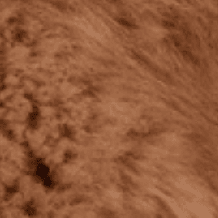
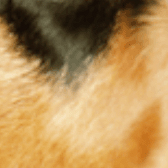
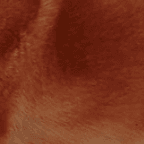
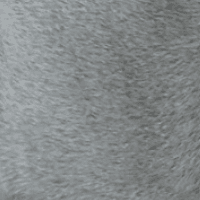
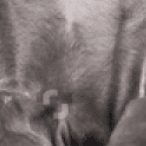
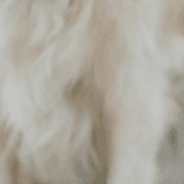



Known Diseases
Diabetes
The metabolic disease diabetes often occurs in overweight dogs.
Hip dysplasia (HD)
The hip dysplasia or hip joint dysplasia of the dog (HD) is a maldevelopment of the hip joint.
Patellar luxation
Patellar luxation is the term used to describe a displacement of the kneecap, which is one of the most common causes of lameness in dogs.
Tartar
If dogs don't get a good food or sugary food, tartar can quickly appear.
Other small dogs
Useful Articles
You can find articles that might interest you in the dogbible blog to match your favorite breed.
Visit our magazineto stay up to date on dog trends.
To find out more, view our Privacy Policy
Find here the breed that suits you and find out what character traits it has. Here you can also learn more about the origin, size and weight of your favorite breeds.
Matching your favorite breed, you'll find articles that might interest you on the dogbible dog blog.
Leaving the dog alone in the garden - advantages/disadvantages
5 reasons why it can be that your dog trembles
Kennel cough - If your dog coughs, you should know this disease


